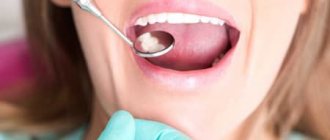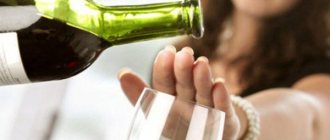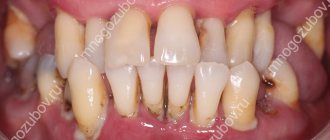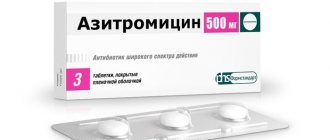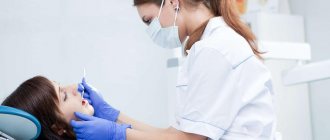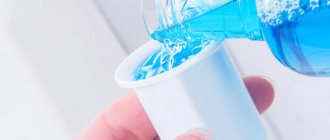In many cases, anesthesia is used for dental treatment. This procedure reduces to almost zero the feeling of pain during surgical intervention in the tooth itself or the soft and inert tissues surrounding it. However, anesthesia, even local, cannot be called a safe procedure. Violations of anesthesia technology by the dentist and failure of the patient to comply with the required regimen can cause various undesirable consequences. It is necessary to figure out how compatible alcohol and dental anesthesia are and whether they are compatible at all.
Accordingly, the patient must take a responsible approach to visiting the dentist’s office and avoid actions that could harm himself. In this context, many patients may wonder how compatible pain relief is with drinking alcohol. After all, it is quite possible that a forced visit to the dentist falls on the same day on which a family celebration or corporate event at work is supposed to take place. In addition, some patients tend to take a dose of alcohol immediately before going to the dental office - “for courage.”
Alcohol after dental anesthesia
Thus, the issue of compatibility of anesthesia and alcohol intake is quite relevant. So, is it possible to drink alcohol after or before dental anesthesia? What consequences can occur if alcohol and painkillers enter the body at the same time? Is it acceptable to drink small doses of alcohol on the day of visiting the dentist?
Is it possible to drink alcohol after dental anesthesia?
Small doses of alcohol on the same day as dental treatment under anesthesia are, in principle, acceptable. If we are talking about strong drinks - vodka or cognac, then the amount taken should not exceed fifty milliliters. In the case of wine, you can drink one glass, and in the case of beer, one half-liter mug. This amount of alcohol will not cause serious harm to the body, but, on the contrary, will reduce nervous tension and normalize sleep. Unfortunately, people often do not stop at this dose and continue drinking. Why should such people think deeply before pouring themselves a second glass? What can result from excessive presence of alcohol in the blood on the same day as dental treatment with anesthesia?
Why is it dangerous to drink alcohol after anesthesia?
The most common anesthetics used in dental procedures are lidocaine and novocaine, as well as their imported analogue ultracaine. Despite the fact that they primarily have a local effect on the nerve endings, over time they still penetrate into the bloodstream. However, the drugs do not have time to produce a significant overall effect on the body as a whole or on certain of its functions and systems, since they are deactivated in the liver and the subsequent excretion of their metabolites by the kidneys in the urine. A certain amount of anesthetic processing products ends up in bile, with which it enters the intestines and is then removed along with feces.
Should you drink alcohol after anesthesia? To be or...?
It is the creation of increased load on the liver that is one of the main side effects of anesthetics. Therefore, for patients with liver disease, local anesthetics may be completely contraindicated. In any case, in case of liver pathologies, the use of anesthetics should be careful.
Ethyl alcohol, present in all alcoholic drinks, enters the body and is also metabolized in the liver. In this organ, alcohol is oxidized to carbon dioxide and water through a series of intermediate products, some of which, such as acetaldehyde, are more toxic than ethanol itself.
Thus, if a patient takes alcohol after dental anesthesia, then his liver has to do double work to utilize both alcohol and local anesthetic. As a result, the liver may not be able to metabolize both ethanol and the drug at once. This may have the following consequences:
- An increase in the toxic effect of the anesthetic due to an increase in the duration of its presence in the blood. The result is an increased likelihood of side effects from the administration of the drug.
- Slowing down the process of alcohol processing, leading to the accumulation of toxic metabolites in the body. As a result, the patient's alcohol intoxication will be more severe. He will be more intoxicated, and the symptoms of a hangover in the morning will be more pronounced.
- Destruction of liver tissue caused by the combined effect of alcohol and painkillers. As a result, toxic hepatitis may develop. The risk of developing this pathology increases if the patient is simultaneously taking antibacterial or antiallergic drugs.
Although most antibiotics in the human body do not directly interact with ethanol to form highly toxic products, these antibacterial drugs are also deactivated by the liver. The combined intake of alcohol, an antibiotic and an analgesic into the body will lead to such a high load on the liver that the consequences may be the most severe due to the joint intoxication of the body with three substances and their processing products at once.
Side effects of anesthetics, exacerbated by alcohol intake, include the following problems:
- arterial hypertension or, on the contrary, hypotension;
- disturbances in heart rhythm;
- dizziness;
- general weakness;
- breathing disorder.
If you drink before anesthesia
A completely non-drinking person is probably perplexed: are there really people who are ready to consciously drink before the upcoming anesthesia? But just any operation, even dental treatment at the dentist, is a risk. A certain fear is associated with this, which is dulled by the influence of alcohol, so a person thinks about a couple of sips of cognac or other alcoholic drink. But there is still doubt about alcohol before anesthesia, which is why people are interested in how dangerous and fraught it can be.
The last glass of alcohol should be drunk no later than 24 hours before the upcoming general anesthesia. But this takes into account the fact that the person did not drink before. If a potential patient is on a binge and has been drinking for several days, then it will take 3-5 days for the body to prepare for the operation. You may need therapeutic help (drips).
What can happen if you don’t follow these rules and go on the operating table while drunk? Of course, no anesthesiologist will deliberately risk the health and life of a patient. But there are emergency cases when emergency surgical care has to be provided to a drunk person. In this case, the following risks are very high:
- Excessive action of the anesthetic causes respiratory depression and increases the load on the cardiovascular system. If the patient suffers from heart disease, it can be fatal.
- Carbon dioxide, formed during the decomposition of alcohol under the influence of enzymes, irritates the gastric mucosa. The action of the anesthetic aggravates the process, and gastrointestinal bleeding can occur.
- Alcohol weakens the effect of the anesthetic, resulting in insufficient pain relief. Against this background, a painful shock may occur, or the patient will wake up right during the operation.
- Problems may also arise with recovery from general anesthesia: for a drunk person, this process can be accompanied by a severe hangover and even delirium tremens, even if only a little was drunk (as they say, for courage).
Fear of surgery is not a reason to drink. And even beer or low-alcohol wine will not help with this. If fear borders on panic, you should consult a doctor. Together with the anesthesiologist, he will prescribe sedatives that will help restore the nervous system and mentally prepare for the upcoming anesthesia without harm to the body.
Novocaine and alcohol: compatibility
Novocaine, which is a brand name for procaine, is a local anesthetic that desensitizes the skin and mucous membranes. It is perhaps the most well-known anesthetic in dentistry, used to numb the mucous membranes caused by contact with nerves in the mouth and gums. Novocaine is rarely used today because other medications, such as lidocaine, are safer and less likely to cause an allergic reaction. Is it possible to drink Novocaine after anesthesia? Drinking alcohol while using Novocaine is dangerous and can cause breathing problems and other complications.
According to the American Association of Anesthesiologists, the anesthesia can remain in your body for 48 hours after administration. “During this time, substances entering your body can interact with the anesthetic.” Alcohol consumption is not recommended for at least two days. Alcoholic drinks include beer, as well as wine and spirits such as vodka, rum and gin. Alcohol after Novocaine can interfere with the ability to drive a car, operate heavy machinery, supervise children, and even make important decisions. Possible respiratory problems are a side effect of both drinking and anesthesia. By combining them, your risk of breathing complications increases.
Drinking alcohol after a local anesthetic can change how the anesthetic works in your body, and may even increase or decrease the amount of medication needed. Side effects of Novocaine include feeling dizzy, drowsy or restless, and this causes nausea or vomiting. May also cause trembling, shaking and seizures. Alcohol may worsen these symptoms. Before use, you must allow your body sufficient time to eliminate the anesthetics from your system.
Novocaine, widely used for pain relief, can even cause such serious side effects as paralysis of the limbs, respiratory arrest, and cardiovascular collapse. In addition, the side effects of the drug include such unpleasant phenomena as involuntary urination and defecation. Other common analgesics, lidocaine and ultracaine, can cause the same adverse reactions as novocaine. All of these drugs are also allergens and can cause reactions such as hives and itchy skin. In severe cases, anaphylactic shock can occur, which can be fatal. The likelihood of such reactions increases even in patients who have good tolerance to anesthetics.
Metabolites of analgesics also have pharmacological activity. If the process of their decontamination slows down due to increased load on the liver, then the duration of their toxic effect on the body increases.
Good to know:
- Is it possible to drink tea after tooth extraction?
- Is it possible to smoke after tooth extraction?
What other problems can alcohol cause after dental anesthesia?
Drinking alcohol after pain relief is dangerous not only by creating excessive stress on the liver. One of the properties of ethanol is its effect on blood clotting. When alcohol enters the blood, coagulability decreases. As a result, postoperative bleeding becomes longer and more difficult to stop. Blood may continue to ooze from the wound even a day after a tooth extraction or other oral surgery. This increases the risk of complications. The patient may develop a hematoma or develop an inflammatory process.
Postoperative hematoma is dangerous because its consequences may not be felt immediately. A hematoma can persist in tissues for months and provoke chronic inflammation in them. Treatment of these pathologies can be lengthy and require additional operations. Alcohol is especially dangerous if large blood vessels were injured during the anesthetic injection or during the operation itself. In this case, the presence of alcohol in the blood will significantly increase the size of the hematoma.
Alcohol, contained in large quantities in strong drinks, also has an irritating effect on fabrics. This slows down healing and weakens tissue resistance to pathogenic microorganisms.
Some alcoholic drinks, in addition to ethanol, contain components that are a breeding ground for microorganisms. Thus, fortified and sweet wines contain a lot of sugar. If a drink gets into a wound, it contributes to the proliferation of pathogenic microflora in it. Beer contains yeast, the entry of which into the wound will lead to discomfort and even inflammation. For the same reasons, after operations in the oral cavity, it is undesirable to drink not only alcohol, but also sour, sweet and carbonated drinks. Acids and carbon dioxide irritate the tissues in the postoperative wound, thereby slowing down the recovery processes.
The irritant effect of ethanol and other components of alcoholic beverages on the oral mucosa can lead to increased pain in the wound after the anesthetic wears off.
Why you shouldn’t drink alcohol after dental treatment
Ethyl alcohol affects blood clotting, significantly reducing it, which can cause longer bleeding from a postoperative wound; sometimes bleeding after alcohol can continue even the next day after the procedure. Lack of hemostasis in the wound after tooth extraction often causes complications: suppuration, hematoma, suture failure, which will require longer treatment and repeated surgery.
Alcohol may interfere with wound healing
Some alcoholic products can create favorable conditions in the wound for the development of infection (for example, beer or sweet wine) or have an irritating effect on damaged tissue.
Alcohol and anesthesia during dental treatment
Alcohol after dental treatment with anesthesia is not recommended until all medications used during surgery have left the body, which usually takes about 48 hours.
The danger lies in the combination of two or more respiratory depressants, and alcohol is the main respiratory depressant. It is a common cause of overdose deaths. While in a surgical setting, respiratory depression can be easily treated, it cannot be cured at home.
When can you drink alcohol after dental anesthesia? You should not drink alcohol for 48 hours after the anesthesia. The body has had a big “blow”, so the person must rest. Rehydrating the body is important, so water or an electrolyte solution is probably the best fluid to consume. Anesthesia for dental treatment and alcohol are incompatible for people who value their health! Answering the question: is it possible to drink alcohol after anesthesia at the dentist? It is not recommended, but it is impossible to prohibit such actions!
Is it possible to drink alcohol after filling a tooth?
First of all, you need to figure out what kind of dental filling was performed and what stage of treatment you are at. If your dentist performed a root canal treatment for periodontitis, he most likely left it open and asked you to return for a follow-up appointment in a few days. In this case, before drinking alcohol, it is necessary to close the tooth cavity with a cotton ball to prevent alcohol and food from entering the root canal.
If you have had a temporary filling installed, you should not be afraid of the negative effects of ethanol on the filling material; it is quite resistant to its effects. However, temporary filling materials are not resistant to mechanical damage, for this reason it is necessary to control the degree of tooth compression at the point of contact between the filling and the antagonist tooth (upper or lower). As practice shows, in the stage of alcohol intoxication, people do not control the force with which they clench their teeth, for this reason part of the temporary filling may break off or fall out altogether.
Beware of drinking alcoholic products containing pigments - natural or artificial - it doesn’t matter! Any red wine can change the color of a permanent filling, not only on the first day after its installation, but also on other days, especially if cheap filling material was used. If you have had your front teeth restored with a composite material or have had your teeth whitened (for example, using the Opalescence Boost system), you are at risk, since “fresh” photocomposite and teeth after whitening are especially susceptible to pigments in alcohol.
Is it possible to drink beer after dental anesthesia? Most often, dental anesthesia is performed for the purpose of their treatment or to eliminate inflammatory processes in the oral cavity. Beer is an alcoholic drink, therefore it contains ethanol, which is processed in the liver like local anesthetics. To prevent the burden of these substances on the liver, you must abstain from drinking alcohol for at least 48 hours. Dyes contained in beer can also stain the surface of teeth. For this reason, drinking beer after dental anesthesia is not recommended.
The effect of alcohol on teeth
Usually, at a medical appointment, in addition to treating a specific tooth, a specialist checks the condition of the entire oral cavity. It is also possible to get a consultation and find out how alcohol affects your teeth.
Constant drinking of alcohol changes the color of tooth enamel, not for the better. Ethanol breakdown products can cause fermentation processes in the oral cavity, which causes destruction of gums and dental tissue.
The effect of alcohol on a person’s teeth will in any case be negative if one drinks an unlimited amount of alcohol. You should not relieve toothache by drinking alcohol. It is possible that the pain will subside for a while, but the symptoms will subside and the tooth will continue to decay.
You should not drink before a medical appointment. The anesthesia may not work and treatment will be painful. Or allergic reactions may occur to the combination of alcohol and painkillers. Blood pressure may rise and breathing problems may occur. The above reasons to abstain from alcohol are enough. Therefore, you should not put your life in danger.
Is it possible to drink alcohol after anesthesia?
Alcohol and other intoxicants can interact with anesthetic drugs to enhance their effect.
If you've just had anesthesia, the effects of alcohol would probably be greater than under normal circumstances. In other words, you are more likely to become intoxicated. People who are intoxicated suffer harm through impaired assessment of normal motor function (movement) and other mental abilities. Extreme intoxication can affect breathing and even cause unconsciousness (fainting).
Any medical facility that sent you home without standard counseling on alcohol use will be risking your health and incurring medico-legal liability. The degree of impairment, and the resulting danger to you, will depend on the amount of alcohol you drank, your individual susceptibility to the effects of alcohol, the amount of anesthesia you were given, your individual susceptibility to its effects, and the time that has passed since the anesthesia was administered. , and the effect of other medications you may have taken. There are many unpredictable factors that can affect your health, for this reason it is necessary to avoid alcohol for at least the next 48 hours.
Alleviating fear before the procedure
In cases of severe anxiety, it is worth taking a weak sedative (tinctures of motherwort and valerian) an hour before the procedure, but do not overdo it with the amount and frequency, so as not to have an effect like after alcohol.
When planning sedation, anesthesia or general anesthesia, it is worth postponing food until a later time. Most often, doctors and anesthesiologists warn about this.
Strict implementation of their recommendations will help in achieving a positive trend in the periods before and after the procedure.
Alcohol changes many of the properties of the blood, and there is a risk of swelling and prolonged heavy bleeding.
The inattention of a patient under the influence of alcoholic beverages can lead to inappropriate behavior. He will forget the instructions recommended by the doctor, and as a result, a number of complications may arise.
A person tends to control fear in different ways, but, most often, by unreasonable and incorrect means. The use of tranquilizers is recommended by dentists to achieve the most positive results. The nervous system, under their influence, reacts to the stimulus at a lower speed. Medical manipulation is accompanied by the absence of fear and tension, there is a relaxing effect. Many tranquilizers are available only with a prescription. Your doctor will tell you which pill regimen to use.
Dental clinics often advise people with high levels of anxiety to take four tablets at a certain time interval, but no later than twenty minutes before visiting the doctor. With moderate stress, one tablet will be enough for the patient to feel comfortable and successfully endure the manipulation.
Most planned operations are impossible without the use of general or local anesthesia. In this case, the doctor will definitely give a recommendation not to drink alcohol during the day before surgery. Also, hospital staff will not be able to begin an emergency operation if the admitted patient is intoxicated.
Therefore, it is worth considering how ethyl alcohol affects anesthesia during surgery. And when can you drink alcohol after anesthesia?
Why you shouldn't drink alcohol before visiting the dentist
Drinking alcoholic beverages is extremely undesirable not only after visiting the dental office, but also before it. Of course, if a person experiences acute toothache after drinking alcohol, the dentist will provide first aid to such a patient. However, the doctor will not carry out planned medical procedures, especially those requiring anesthesia, if there is a smell of alcohol on the patient’s breath, since the following problems may arise when treating teeth after drinking alcohol:
- insufficient action of the anesthetic, due to which the patient may retain pain sensitivity of the tissues;
- increasing the likelihood of an allergy to an anesthetic drug;
- Both alcohol and analgesics have an effect on the central nervous system, so their combined action can lead to unpredictable consequences, even such serious ones as surges in blood pressure, respiratory paralysis and heart failure.
So, from all that has been said, we can draw the following conclusions:
- After dental anesthesia, you can drink alcohol only in symbolic quantities, but it would be best to refrain from drinking alcohol for at least 48 hours, and postpone the planned feast to some other day.
- It is advisable to abstain from alcohol not only on the day of going to the dentist, but also in the next two to three days, since all this time there is a risk of negative consequences.
- Even the smallest amount of alcoholic beverages - about fifty grams of vodka or cognac or two hundred grams of wine - can be taken only in the absence of general health problems and a few hours after visiting the dentist's office. We should not forget that the combined effect of medications and alcohol can provoke an inadequate reaction in the body. Therefore, even if after a visit to the dentist you happen to drink a glass of strong drink, you should absolutely refuse to continue drinking alcohol.
- If dental treatment is accompanied by the use of antibiotics, then you should abstain from alcohol throughout the entire course of taking the antibacterial drug.
The body's reaction to alcohol before anesthesia
When visiting a dentist and having teeth removed, groups of painkillers and local or general anesthesia are usually used. In this way, the feeling of a painful and unpleasant nature is removed. Pain signals are blocked by affecting the endings of the nervous system. The threat of serious pain is eliminated, but stress, anxiety, and feelings of fear do not go away. However, you should not think that the mild sedative effect of alcohol such as beer will give a positive result. Its interaction with anesthetic substances will lead to the opposite effect.
The rapid absorption of alcohol contained in beer will entail vasodilation processes within a ten-minute period after the first sip.
Poor blood clotting in the socket during tooth extraction is extremely dangerous. The protective functions of a blood clot, if formed, will be especially low since it will be softer. There is a high risk of bleeding. In the worst case scenario, the forming blood clot will be carried out. There is a high risk of infection, prolonged healing of the hole, and acute painful sensations. Such a minor violation of the preoperative regimen will lead to very serious complications.
Consequences of drinking alcohol before anesthesia
In advance of the operation, the surgeon tries to explain why it is impossible to combine anesthesia and alcohol. Although the result of the interaction of ethyl with anesthesia in an individual case cannot be predicted by more than one specialist, most doctors consider this combination to be potentially dangerous for any organism.
The use of an anesthetic against the background of exposure to a strong drink can cause disturbances in pain relief. It may be too strong, which will become an additional burden on the heart and blood vessels, even leading to death. Or the painkiller will not work at all, which will complicate the surgeon’s work.
With local anesthesia
Alcohol during local anesthesia (including conduction) has the same destructive effect on the body and can lead to the development of complications. During dental operations, drinking strong drinks is fraught with infection and heavy blood loss.
Before going to the dentist
You should not drink ethanol before visiting the clinic for the following reasons:
During dental operations, drinking strong drinks is fraught with infection and heavy blood loss.
- Blood clotting disorders and vasodilation. Alcohol increases the chance of severe bleeding after removal of a nerve, tooth, or other manipulation. Alcohol worsens the effect of medications, making stabilization of the condition more difficult.
- Deterioration in freezing quality. The effects of painkillers change when there is alcohol in the blood. Most often, the anesthesia is weakened, causing the patient to feel severe pain during the operation. An additional dose may cause side effects from the respiratory, central nervous and cardiovascular systems. In severe cases, attacks of vomiting, respiratory arrest and cardiac dysfunction are possible.
- Increased load on the liver. Ethanol and anesthetic substances decompose in it. The simultaneous use of several types of toxin causes the liver to work in emergency mode. This is especially dangerous if you have chronic diseases.
- Risk of developing allergic reactions. The increased stress on the immune system and liver increases the risk of side effects during or after surgery. The swelling may cause difficulty breathing.
Dentists recommend refraining from drinking alcohol the day before filling and other operations. In some cases, the duration of restrictions may be extended.
Is it possible to drink beer in the cold?
As with any alcohol, drinking beer in the cold is not recommended under any circumstances. Alcohol will only speed up the cooling of the body, which can lead to negative consequences and even death. In addition, any alcohol is prohibited from being consumed in public places.
Beer is one of the popular and favorite drinks almost all over the world. When properly consumed and stored, it is perfectly refreshing and relaxing, especially in the heat. This intoxicating drink carries many beneficial properties and is conducive to a good time.
A common situation: we bought beer and left the bottles (tin cans) in the back seat of the car, and frost hit at night. Or, as an option, they put the bottle in the freezer for a few minutes, but forgot for two hours. In both cases the beer will freeze. You should not immediately throw away the intoxicated ice; in some cases, the situation can be saved or another use for the drink can be found.
